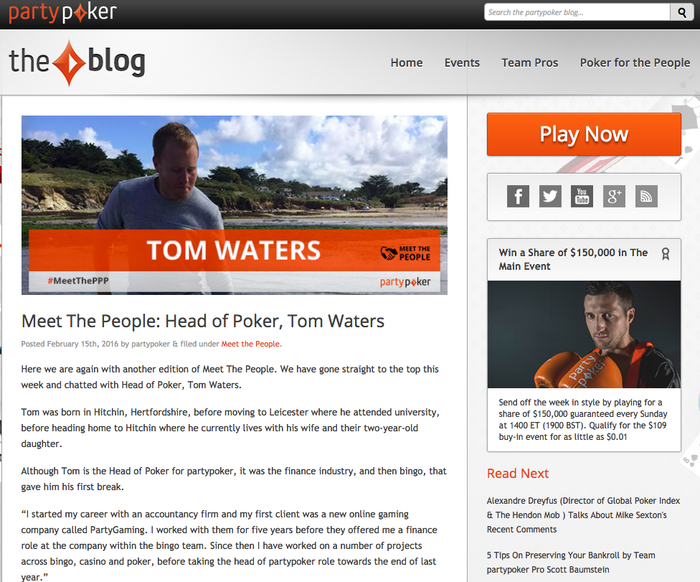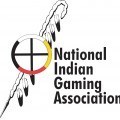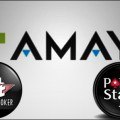
Partypoker Enters “Brand Resurrection” Mode Ahead of PokerStars Return to United States
Partypoker is admitting publicly that it isn’t the online poker network it once was, but company executives have a plan to reverse their global standing and return the brand to the heights it achieved during the game’s glory days of the early 2000s.

Partypoker is looking to rebrand itself and create a more player-friendly poker room, according to a recent blog on the site. (Image: pokerstars.it)
“We are trying to resurrect a brand that faces fierce competition on a daily basis. It’s an extremely fast moving industry, meaning that we are constantly making changes to the product and offering in order to keep pace,” the company’s Head of Poker Tom Waters said in his latest “Meet the People” blog post.
On February 1, GVC Holdings completed its $1.6 billion acquisition of partypoker’s parent company bwin.party.
Though its primary focus is the United Kingdom iPoker market, partypoker operates in New Jersey through its partnership with the Borgata Hotel Casino in Atlantic City. Online poker has struggled in the Garden State since the market’s legalization in 2013, but there is reason to be optimistic after four consecutive months of gains, not to mention the impending return of PokerStars.
PokerStars’ Ultimate Gamble
It’s almost hard to believe a decade later, but pre-2006, partypoker was the dominant Internet poker room in the United States. When Congress passed the Unlawful Internet Gambling Enforcement Act (UIGEA) in 2006 to ban wire transmissions for money related to online gambling activities, partypoker, along with numerous other iGambling websites, heeded calls to desist operations.
PokerStars did not.
From October 13, 2006, until April 15, 2011, PokerStars operated in spite of UIGEA from its Isle of Man headquarters. The gamble paid off, as PokerStars became the planet’s preeminent online poker destination.
That notion seemed to change when the Department of Justice seized the PokerStars domain on poker’s Black Friday in April 2011. And with the website’s $4.9 billion acquisition by Amaya and PokerStars’ subsequent approval by New Jersey gaming regulators, partypoker will need to put on some magic running shoes to catch up now.
Party’s Not Over
Currently the second-ranked iPoker room in the Garden State, behind WSOP/888 and fourth internationally in the dot-com sphere, partypokers’ goal, according to Waters’ recent blog, is to entice new and returning players to the site by creating a player-friendly environment that is free of withdrawal fees and third-party tools.
“We realized that, as a company, we had made some mistakes in the past and perhaps neglected our players,” Waters explained. “This led to a detailed review of the business and we looked to see where partypoker could fit into the marketplace and offer something back to the players.”
But will that be enough to make strides? Let’s not forget that after months of investigative scrutiny, in October the New Jersey Division of Gaming Enforcement (DGE) granted Amaya and its subsidiaries PokerStars and Full Tilt with an operating license to commence business in the state.
And the PokerStars entry is expected to officially launch in the coming months.
How that will impact the two rooms currently operating remains unknown. It could grow the market as a whole, by enticing traditional land-based players online, not to mention many former Internet customers. It’s unlikely that PokerStars won’t impact the existing sites in some way, though.
Whatever the case, partypoker will be ready.
“We are now far better placed to listen to our players and we hope to continue to make positive changes over the coming months,” Waters’ blog concluded.















0 Comments